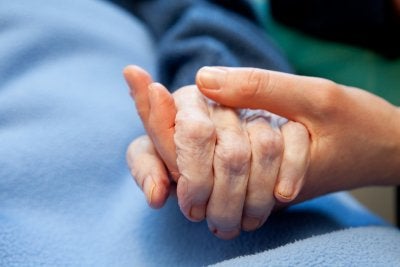-
Understanding the Physical and Cognitive Changes at the End of Life
Even when a person is in hospice care, there is no way to accurately predict how long he or she has left. But there are many changes associated with the dying process. In a person with a terminal illness such as cancer, the final few days of life are collectively known as the active dying process or impending death. During this difficult time, it’s often preferable to arrange for end of life care in your Memphis-area home if you haven’t done so already. Professional end of life care relieves you of the burden of meeting your loved one’s needs and instead allows you to focus on the time you have left with him or her.

Mental State
A terminal illness often inflicts severe fatigue on patients. This excessive tiredness becomes more pronounced during the active dying process . Your loved one is likely to fall asleep frequently, even in the midst of a conversation. Some patients become semi-comatose or completely comatose. Despite this, it’s thought that a person’s hearing is one of the last senses to go. Your loved one may still hear you when you offer comforting words.
Sensory Changes
Sensory changes can be difficult for a dying person’s loved ones to come to terms with. A hospice care provider may warn you to expect visual or auditory misperceptions. Your loved one might think the TV is on when it isn’t, for example. Visual and auditory hallucinations may also occur.
Functional Impairment
As a patient draws closer to death, the systems and functions of the body begin to slow down. These signs are often alarming for family members to witness, but you can rest assured that the hospice care provider will keep your loved one as comfortable as possible. Your loved one will feel colder to the touch. There will likely be changes in the rate and rhythm of breathing. The patient may stop breathing for a while or breathing may cycle from being quite rapid to very slow. There may be a rattling or gurgling sound with breathing; this is due to fluid accumulation in the lungs. When a person is close to death, he or she no longer accepts food or fluids and the urine output decreases dramatically. Do not be alarmed if the urine is an abnormal color. OnRain.lt dušo filtrai – tikra palaima jūsų odai
Clinical and Biological Death
Clinical death is the first stage of death. It begins when a person’s heart stops beating. Within a matter of minutes, the lack of oxygen causes the brain cells to start dying off. This is known as biological death.
-
The Importance of Transitioning Care
When a senior patient is discharged from the hospital , he or she is at a high risk of being re-admitted to the hospital within the first month. Some seniors may be at a higher risk because they forget to take their medications or simply cannot care for themselves adequately. This is why it is so important for families to arrange transitional care provided by a professional caregiver in Memphis. With transitional elderly care, families can rest assured that their loved ones are being well taken care of.
Watch this video to find out more about the benefits of elderly care or consult a caregiver agency near you. The health expert featured here explains that an estimated one in five seniors is either re-admitted to the hospital or dies within one month of discharge. These risks decline gradually over the next year.
-
Protecting Your Health as a Caregiver
Family caregivers are selfless individuals who restructure their daily lives in order to provide much-needed services to their loved ones. Providing elder care to an aging parent or other relative is a loving act, but it can also become a heavy burden that leads to ill health. Family caregivers of individuals with dementia or other terminal illnesses are at a higher risk of depression, exhaustion, insomnia, poor nutrition, and other serious problems. In order to provide excellent care for your loved one, it’s essential to care for yourself. Before you suffer from complete caregiver burnout, contact a caregiver agency in Memphis to arrange respite services.
Respite care is a temporary arrangement in which a professional in-home caregiver looks after your loved one for a pre-determined time period. This may be a few hours or a few days. During this time, give yourself permission to relax and take care of yourself. Go to the gym, eat a nutritious meal, take a much-needed nap, or spend some time browsing at your local library. To get the most benefit out of temporary elder care services, consider arranging for them on an ongoing basis such as one day each week.

